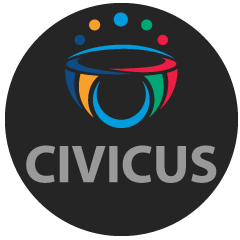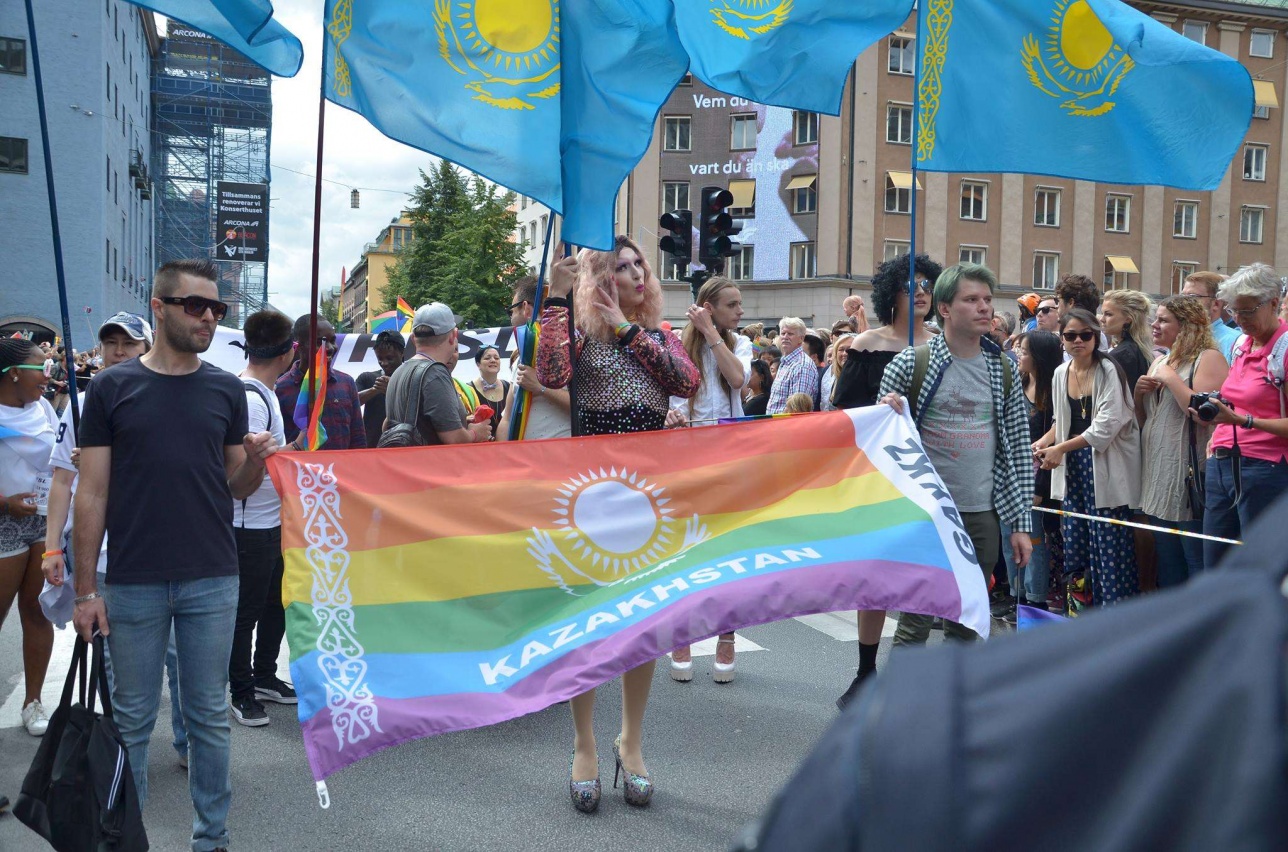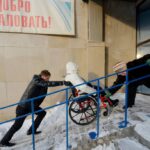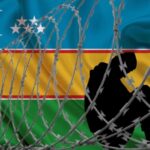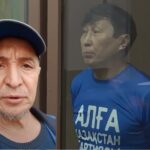Just three percent of the world’s population live in countries where the rights to protest, organise and speak out are respected, protected and fulfilled according to the CIVICUS Monitor, which today releases the first-ever global dataset on civic space. CIVICUS also finds that serious civil space violations are taking place in 106 countries, well over half of all UN Member States. Among these are the countries of Central Asia, as well as most other countries of the former Soviet Union (FSU).
Since the beginning of 2017, International Partnership for Human Rights (IPHR) and its partners from Central Asia have been providing information about developments in this region to the CIVICUS Monitor. The partners IPHR work with on this initiative include Kazakhstan International Bureau for Human Rights and Rule of Law (on Kazakhstan), Legal Prosperity (on Kyrgyzstan), Nota Bene (on Tajikistan), Turkmen Initiative for Human Rights (on Turkmenistan), the Association for Human Rights in Central Asia (on Uzbekistan), as well as other Central Asian human rights groups and defenders.
“We are happy and excited to be part of this global initiative aimed at tracking and rating civic space worldwide,” said Brigitte Dufour, IPHR Director. “At this time, when conditions for civil society engagement are deteriorating not only in our target region (Central Asia and the wider former Soviet Union) but also elsewhere, coordinated efforts to counteract this alarming trend are needed more than ever,” she continued.
The CIVICUS Monitor rates countries based on how well they uphold the three fundamental civic freedoms that enable people to act collectively and make change: freedom of association, freedom of peaceful assembly, and freedom of expression.
Of the 195 rated, it finds that civic space in 20 countries is closed, a rating characterised by an atmosphere of fear and violence, and severe punishment for those who dare to disagree with authorities. A further 35 countries are rated repressed. Fifty-one countries are rated obstructed and 63 narrowed. Just 26 countries are rated as open, meaning the state safeguards space for civil society and provides platforms for dialogue. On average, countries with more open civic space scale have higher Human Development Index scores, better Gini Index scores and better scores on the Electoral Democracy Index.
Among the Central Asian countries, Turkmenistan and Uzbekistan are rated as closed, Tajikistan as repressed and Kazakhstan and Kyrgyzstan as obstructed. All the other countries of the former Soviet Union expect for Estonia and Latvia are also deemed unfree with respect to civic space: Russia, Azerbaijan and Belarus are assessed as repressed, Armenia, Moldova and Ukraine as obstructed and Georgia and Lithuania as narrowed.
Violations of freedom of association, freedom of peaceful assembly and freedom of expression are, however, not limited to countries outside of Europe. According to the CIVICUS Monitor ratings, only 14 of the current 28 EU member states have an open civic space. EU candidate country Turkey has been given the same rating as Russia, Azerbaijan, Belarus and Tajikistan (“repressed”). Turkey has also been placed on a new Watch List of countries, where there is a serious and rapid decline in civic space. Other countries on this list compiled by CIVICUS include the USA, Macedonia, Cameroon and Myanmar.
Click here for responsive visualisations of the findings of the CIVICUS Monitor: https://monitor.civicus.org/findings
An explanation of the ratings used can be found here: https://monitor.civicus.org/Ratings/
The CIVICUS Monitor documents attacks on civil society with updates every weekday. Analysis of almost 500 updates published on the CIVICUS Monitor over the past four months has found:
- Detention of activists, use of excessive force against protesters and attacks on journalists were the three most common violations of civic freedoms.
- Activists were most likely to be detained over criticism of authorities, human rights monitoring or demands for social or economic needs to be met.
- Excessive force was most likely to be used against protesters who criticise government decisions or corruption, call for action on human rights abuses or call for basic social or economic needs to be met.
- Journalists were most likely to be attacked for political reporting, covering protests or conflicts, or because of their ethnicity, religious or political affiliation.
- In the majority of cases, the state is the perpetrator of violations, although non-state actors also frequently attack journalists, with many of these crimes going unpunished.
Updates on the situation in Central Asia published by the CIVICUS Monitor on the basis of information from IPHR and its partners have highlighted these types of violations, as well as other recent developments of concern in the countries of this region (these countries can be explored here: https://monitor.civicus.org/newsfeed/).
CIVICUS Monitor ratings are based on a combination of inputs from local civil society activists, regional civil society experts and research partners, existing assessments by national and international civil society organisations, user-generated input and media-monitoring. The CIVICUS Monitor now provides ratings for all UN Member States and regular updates from a network of twenty research partners around the world, including IPHR and its Central Asian partners.
****
Annex I – CIVICUS Monitor ratings, 4th April 2017
Closed (20 countries): Bahrain, Burundi, Cuba, Democratic Republic of the Congo, Equatorial Guinea, Eritrea, Ethiopia, Iran, Laos, Libya, North Korea, Saudi Arabia, Somalia, South Sudan, Sudan, Syria, Turkmenistan, United Arab Emirates, Uzbekistan and Vietnam.
Repressed (35 countries): Afghanistan, Algeria, Angola, Azerbaijan, Bangladesh, Belarus, Cambodia, Cameroon, Central African Republic, Chad, China, Colombia, Djibouti, Egypt, Gambia, Iraq, Liberia, Mauritania, Mexico, Myanmar, Oman, Pakistan, Palestine, Qatar, Republic of the Congo, Russia, Rwanda, Swaziland, Tajikistan, Thailand, Turkey, Uganda, Venezuela, Yemen and Zimbabwe.
Obstructed (51 countries): Armenia, Bhutan, Brazil, Brunei Darussalam, Burkina Faso, Côte d’Ivoire
Dominican Republic, Ecuador, Fiji, Gabón, Guatemala, Guinea, Guinea Bissau, Haiti, Honduras, Hungary, India, Indonesia, Israel, Jordan, Kazakhstan, Kenya, Kuwait, Kyrgyzstan, Lebanon, Lesotho, Madagascar, Malaysia, Maldives, Mali, Moldova, Mongolia, Morocco, Mozambique, Nauru, Nepal, Nicaragua, Niger, Nigeria, Paraguay, Peru, Philippines, Sierra Leone, Singapore, Sri Lanka, Tanzania,
Timor-Leste, Togo, Tunisia, Ukraine and Zambia.
Narrowed (63 countries): Albania, Antigua and Barbuda, Argentina, Australia, Austria, Bahamas, Belize, Benin, Bolivia, Bosnia & Herzegovina, Botswana, Bulgaria, Canada, Chile, Comoros, Costa Rica, Croatia, Dominica, El Salvador, France, Georgia, Ghana, Greece, Grenada, Guyana, Italy, Jamaica, Japan, Kiribati, Kosovo, Lithuania, Macedonia, Malawi, Marshall Islands, Mauritius, Micronesia, Montenegro, Namibia, Palau, Panama, Papua New Guinea, Poland, Romania, Saint Lucia, Samoa, Senegal, Serbia, Seychelles, Slovakia, Slovenia, Solomon Islands, South Africa, South Korea, Spain, St Kitts and Nevis, St Vincent and the Grenadines, Suriname, Tonga, Trinidad and Tobago, United Kingdom, United States of America, Uruguay and Vanuatu.
Open (26 countries): Andorra, Barbados, Belgium, Cape Verde, Cyprus, Czech Republic, Denmark, Estonia, Finland, Germany, Iceland, Ireland, Latvia, Liechtenstein, Luxembourg, Malta, Monaco, Netherlands, New Zealand, Norway, Portugal, San Marino, Sao Tome and Principe, Sweden, Switzerland and Tuvalu.
Regional breakdown
|
|
Africa |
Americas |
Asia |
Europe |
Oceania |
|
Closed |
9 |
1 |
10 |
0 |
0 |
|
Repressed |
15 |
3 |
14 |
3 |
0 |
|
Obstructed |
18 |
9 |
19 |
3 |
2 |
|
Narrowed |
10 |
21 |
3 |
19 |
10 |
|
Open |
2 |
1 |
0 |
21 |
2 |
****
Notes to editors:
The CIVICUS Monitor is available at https://monitor.civicus.org. If you have a question about the CIVICUS Monitor – see our FAQ page here.
For more information or to set up interviews with CIVICUS staff and research partners, please contact Deborah Walter, Communication Manager, CIVICUS on media@civicus.org or deborah.walter@civicus.org . Tel: +27 – 11 – 8335959
CIVICUS is a global alliance of civil society organisations and activists dedicated to strengthening citizen action and civil society around the world.
www.twitter.com/CIVICUSalliance
#CIVICUSMonitor


